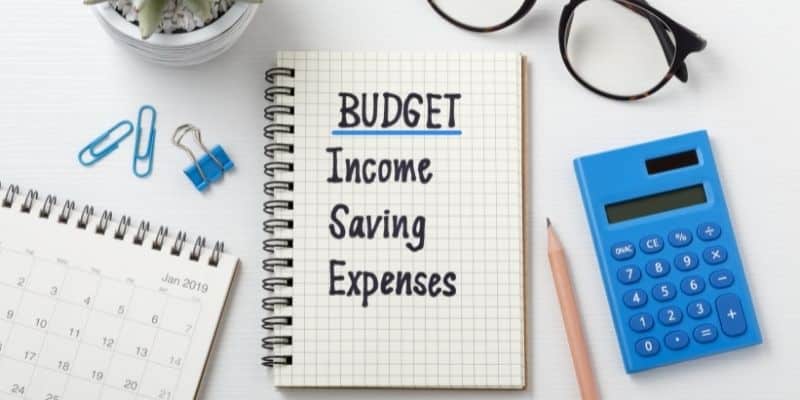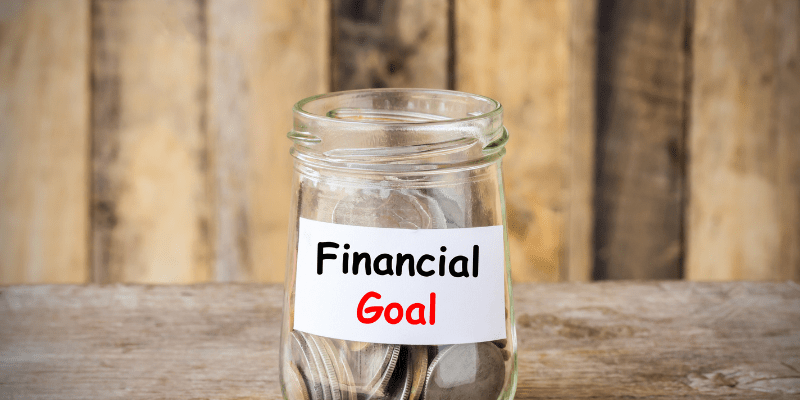
When it comes to budgeting, many people just don’t know where to start. What is the main purpose of a budget? A budget can be used for so many different things, but its primary goal is usually to help you save money or get out of debt.
In this article post, we will discuss 18 different purposes that a budget can serve. Once you understand what a budget can do for you, it will be much easier to create one!
Why Creating a Budget can help you reach your Financial Goals
Creating a budget can help you in many different ways. It can be used to track your spending, set financial goals, and even help you stick to a monthly or weekly allowance.
If you are trying to save money, a budget can be a great tool to help you stay on track. It can also be used to get out of debt – by creating a budget and sticking to it, you can slowly pay off your debts and eventually become debt-free.
There are many different ways to create a budget, so find one that best suits your needs. If you need help getting started, there are plenty of online resources available.
A quick Google search will turn up dozens of websites with helpful tips and advice on how to create a successful budget. Give it a try – the benefits of having a budget outweigh the effort required to set one up!
18 Main Budget Purposes:
#1. To track spending in order to stay within budgetary limits
#2. To save money for specific goals (e.g., retirement, vacation, home purchase)
#3. To get out of debt
#4. To create a cushion of savings in case of unexpected expenses
#5. To pay off debts faster
#6. To have a better understanding of where money is being spent
#7. To set financial goals and track progress
#8. To reduce stress about money
#9. To prepare for retirement
#10. To avoid overspending
#11. To teach children about financial responsibility
#12. To create a positive net worth
#13. To simplify financial record-keeping
#14. To make informed decisions about financial products
#15. To reduce financial anxiety
#16. To improve your credit score
#17. To reduce money-related arguments with family or roommates
#18. To have more money to give to charitable causes
#1. To track spending in order to stay within budgetary limits
One of the main purposes of a budget is to help you keep track of your spending. This is especially important if you have a limited amount of money to work with each month. By tracking your spending, you can ensure that you do not go over budget and end up in debt.
There are many different ways to track your spending, including online budgeting tools and apps, Excel spreadsheets, and good old-fashioned pen and paper. Find a method that works for you and make sure to use it faithfully each month.
If you are having trouble staying within your budget, there are a few things you can do to help. First, take a closer look at your spending patterns and see where you might be able to cut back.
Second, set some financial goals and make sure they are realistic – if your goals are too ambitious, you are more likely to give up on them.
If you are able to stick to a budget, the benefits are clear. You will be less likely to go into debt, you will have more money to spend each month, and you will be better prepared for unexpected expenses. Creating and following a budget may take some effort in the beginning, but it is well worth it in the end!
More Reading: Living below your Means
#2. To save money for specific goals (e.g., retirement, vacation, home purchase)

One of the main purposes of a budget is to help you save money for specific goals. This could include retirement, a vacation, or a down payment on a house.
By setting aside money each month and tracking your progress, you can make sure that you are on track to reach your goal. There are many different ways to save money, including setting up a budget, using a savings account, and investing in stocks or mutual funds.
If you are having trouble saving money for specific goals, there are a few things you can do to help. First, make sure your goals are realistic – if they are too ambitious, you are less likely to reach them.
Second, find an automated way to save money, such as setting up a budget or using a savings account. This will help you make sure that you are putting aside money each month without having to think about it.
If you are able to save money for specific goals, the benefits are clear. You will be less likely to go into debt, you will have more money to spend each month, and you will be better prepared for unexpected expenses.
Creating and following a budget may take some effort in the beginning, but it is well worth it in the end!
More Reading: How to Save $10,000 is Six Months
#3. To get out of debt
One of the main purposes of a budget is to help you get out of debt. By creating a budget and sticking to it, you can ensure that you have enough money to pay off your debts each month.
This will help you reduce your overall debt load and eventually become debt-free. There are many different ways to get out of debt, including debt consolidation, debt settlement, and bankruptcy.
If you are having trouble getting out of debt, there are a few things you can do to help. First, take a close look at your budget and see where you might be able to cut back on spending. Second, set up a Debt Reduction Plan and make sure you stick to it.
Finally, get help from a financial advisor or debt counselor – they can provide guidance and advice on how to get your finances back on track.
If you are able to get out of debt, the benefits are clear. You will be less likely to go into debt in the future, you will have more money to spend each month, and you will be better prepared for unexpected expenses. Creating and following a budget may take some effort in the beginning, but it is well worth it in the end!
#4. To create a cushion of savings in case of unexpected expenses
One of the main purposes of a budget is to help you create a cushion of savings in case of unexpected expenses. By setting aside money each month and investing it in a savings account, you can make sure that you have enough money to cover unexpected costs.
This could include car repairs, medical bills, or home repairs. Having a cushion of savings can help you avoid going into debt in the event of an unexpected expense.
If you are having trouble creating a cushion of savings, there are a few things you can do to help. First, make sure your budget is realistic and includes enough money for savings. Second, find an automated way to save money, such as setting up a budget or using a savings account.
This will help you make sure that you are putting aside money each month without having to think about it. Finally, get help from a financial advisor – they can provide guidance and advice on how to save for unexpected expenses.
If you are able to create a cushion of savings, the benefits are clear. You will be less likely to go into debt in the event of an unexpected expense, you will have more money to spend each month, and you will be better prepared for the future.
#5. To pay off debts faster
One of the main purposes of a budget is to help you pay off your debts faster. By creating a budget and sticking to it, you can ensure that you have enough money to pay off your debts each month. This will help you reduce your overall debt load and eventually become debt-free.
There are many different ways to pay off your debts, including debt consolidation, debt settlement, and bankruptcy.
If you are having trouble paying off your debts, there are a few things you can do to help. First, take a close look at your budget and see where you might be able to cut back on spending.
#6. To have a better understanding of where money is being spent
Another one of the main purposes of a budget is to help you have a better understanding of where your money is being spent. This is important because it can help you make informed decisions about your spending.
When you know what you are spending your money on, you can make adjustments to ensure that your money is going towards things that are important to you.
If you are having trouble understanding your spending, there are a few things you can do to help. First, take a close look at your budget and see where you might be able to cut back on spending.
Second, track your spending for a month so that you can see where all of your money is going. Finally, get help from a financial advisor – they can provide guidance and advice on how to understand your spending.
#7. To set financial goals and track progress

One of the main purposes of a budget is to help you set financial goals and track your progress. By setting goals, you can ensure that you are working towards something specific.
This could include saving for a down payment on a house, paying off your debts, or creating a cushion of savings. Once you have set your goals, you can use your budget to track your progress and make sure that you are on track.
#8. To reduce stress about money
One of the main purposes of a budget is to help reduce stress about money. When you have a budget, you can be sure that you are in control of your finances and you know where your money is going. This can help you feel more confident about your financial situation and less stressed about money.
#9. To prepare for retirement
One of the main purposes of a budget is to help you prepare for retirement. By creating a budget and sticking to it, you can ensure that you have enough money saved for retirement. This will help you live comfortably in retirement and avoid having to rely on others for financial support.
#10. To avoid overspending
One of the main purposes of a budget is to help you avoid overspending. When you have a budget, you are less likely to impulse buy and more likely to stick to your spending goals. This can help you save money each month and reduce your overall debt load.
More Reading: Examples of Bad Maney Habits
#11. To teach children about financial responsibility
One of the main purposes of a budget is to teach children about financial responsibility. By teaching them how to create and stick to a budget, you can help them learn how to manage their money effectively. This will set them up for success in adulthood and help them avoid making costly mistakes with their finances.
#12. To create a positive net worth

One of the main purposes of a budget is to help you create a positive net worth. When you have a positive net worth, it means that your assets (such as savings and investments) are more than your liabilities (such as debts and mortgages). This can be an important goal to work towards, especially if you want to retire comfortably.
#13. To simplify financial record-keeping
One of the main purposes of a budget is to help you simplify your financial record-keeping. When you have a budget, all of your spending information will be in one place. This can make it easier to track your progress and see where you might need to make adjustments.
If you are looking for ways to simplify your financial life, a budget can be a helpful tool. By taking the time to create a budget, you can ensure that your finances are organized and easy to understand.
#14. To make informed decisions about financial products
One of the main purposes of a budget is to help you make informed decisions about financial products. When you have a budget, you can compare different products side-by-side and see which one is the best fit for your needs.
This can help you save money and avoid making expensive mistakes with your finances.
#15. To reduce financial anxiety
One of the main purposes of a budget is to help you reduce financial anxiety. When you have a budget, you know what your financial situation looks like and you are less likely to feel stressed about money. This can be helpful for both your mental and physical health.
#16. To improve your credit score
One of the main purposes of a budget is to help you improve your credit score. By paying off your debts and maintaining a good credit history, you can increase your credit score over time. This can make it easier to borrow money when you need it and may even help you get a lower interest rate on your mortgage or car loan.
#17. To reduce money-related arguments with family or roommates
One of the main purposes of a budget is to help you reduce money-related arguments with family or roommates. When you have a budget, you can avoid fights about who is spending too much money and what needs to be paid for each month.
This can help improve your relationships and make it easier to live together peacefully.
#18. To have more money to give to charitable causes
One of the main purposes of a budget is to help you have more money to give to charitable causes. When you have a budget, you can track your spending and make sure that you are not overspending on unnecessary items. This can free up more money to donate to causes that you care about.
Conclusion – What Is The Main Purpose Of A Budget?
A budget is a great way to keep your finances in check and make sure you are staying on track with your financial goals. But what is the main purpose of a budget?
There are many purposes for a budget, but some of the most important ones include: tracking expenses, saving money, planning for future expenses, and reducing debt.
If you are looking to get your finances in order, then creating a budget is a great place to start. By understanding what the main purpose of a budget is, you can make sure that your budget is working for you and helping you reach your financial goals.
Over To You
Do you have a budget? What do you use it for? Share your thoughts in the comments below!
What is your experience with budgeting? Do you find it helpful or difficult? Let us know in the comments below! Thanks for reading!
Latest Articles
- Why is Personal Finance Dependent Upon Your Behavior?
- Hosting an Online Garage Sale: Go from Clutter to Cash now
- 11+Cheap(or Free) things to do in retirement: Do more with less!
- Coast FIRE: Path to Financial Independence with Less Sacrifice
- Cash Stuffing Method: The Ultimate Financial Hack You Need to Know